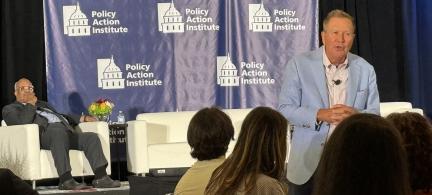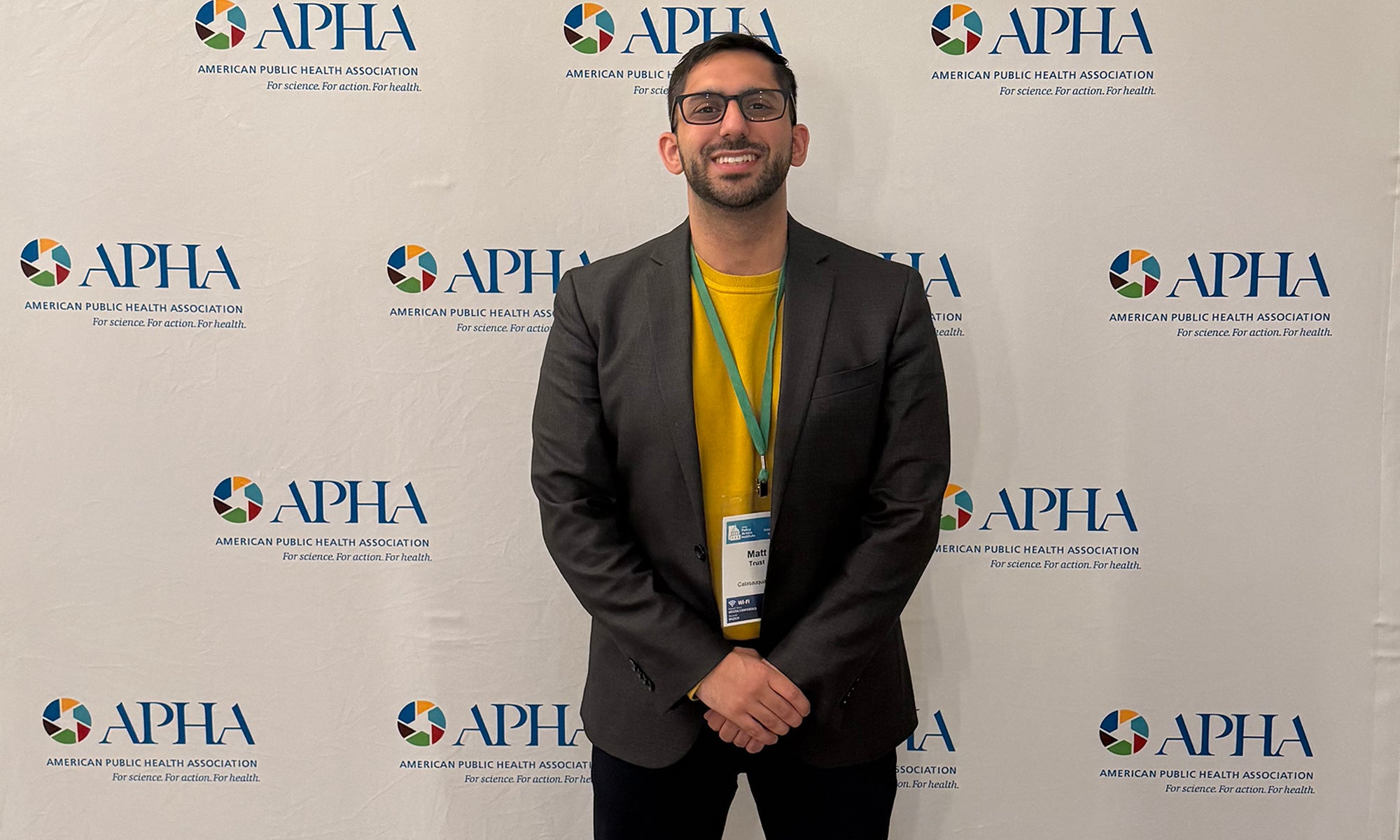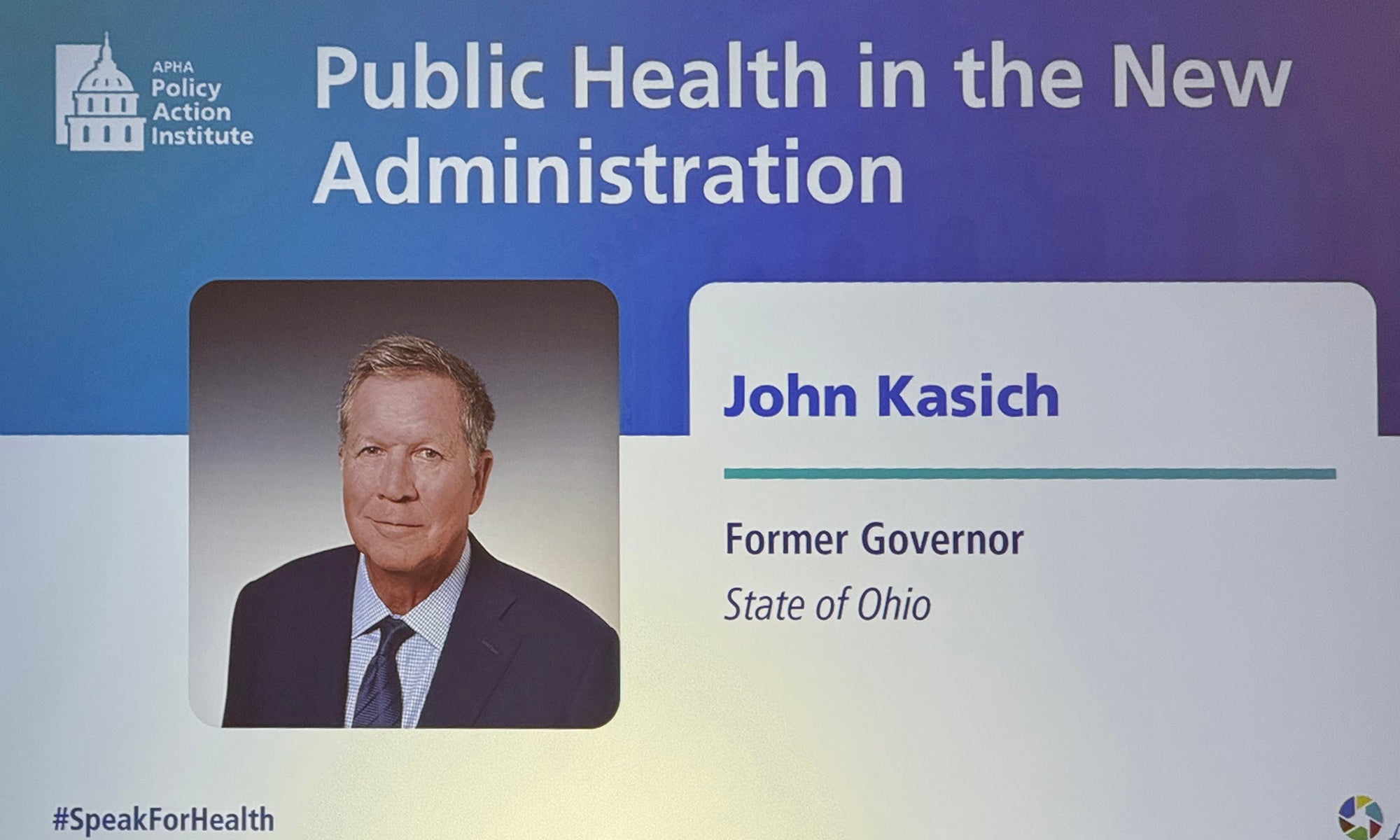
7 Thoughts: Reflections from APHA’s 2025 Policy Action Institute
Second in a series of reflections from the LPPIH
As part of our ongoing series highlighting the insights our team gains from national conferences, this edition reflects on the 2025 Policy Action Institute hosted by the American Public Health Association (APHA) in Washington, D.C. The Policy Action Institute brings together public health professionals, policymakers and advocates from across the country to explore the intersection of health, politics and policy.

Matt Trust, our Community Engagement and Communications Specialist at Leonard Parker Pool Institute for Health (LPPIH), attended and found this conference to be both challenging and energizing – especially in today’s divided political climate. He offers these takeaways:
Seven Reflections from the Policy Action Institute
- Storytelling is a superpower
Across the board, speakers from both sides of the aisle emphasized that data alone doesn’t change minds; stories do. Former Ohio Gov. John Kasich, R, reminded attendees that people remember parables more than pie charts. Other presenters built on this, noting that compelling, human-centered stories are essential for connecting with policymakers and influencing behavior. Public health professionals must continue to refine our ability to tell authentic stories that center the people we serve, not just the programs we run.
- Common ground still exists if we’re willing to look for it
Many presenters acknowledged that bipartisan cooperation is increasingly rare, yet still possible, especially at the state level. Panelists pointed out that while words like “equity” may be controversial to some, framing conversations around children’s health or chronic disease prevention often opens doors. At LPPIH, we’ve seen how shared values – like keeping families healthy or ensuring every child thrives – can be a starting point, even when political views differ. Our partnerships with FrameWorks Institute and The Rippel Foundation allow us to learn best practices on effective framing to successfully unite stakeholders around a common agenda.
- Relationships are the real infrastructure
Whether engaging with a city council member or a congressional representative, one truth echoed again and again: relationships matter. Advocacy isn’t just about showing up when something is at stake, it’s about being a trusted presence over time. Several speakers reminded us that most legislators are everyday people who value respect, honesty and connection. We were encouraged to learn their stories, understand what drives them and show up with gratitude as often as we show up with asks. Relationships are at the center of our neighborhood development approach. We believe they are the fabric and foundation of the ongoing systems change work.
- Know your “why” and theirs too
Advocacy isn’t just about stating facts or fighting for funding. It’s about connecting your goals to the priorities of the decision-makers across the table. That starts with knowing your own purpose – why you care about an issue – and then researching who has the power to influence it. What do they care about? What’s their background? What language resonates with them? At LPPIH, we’re learning to apply this kind of audience-centered thinking to local conversations around neighborhood health. Choices in framing conversations affect how people hear us, what they understand and how they act.
- Public health must reclaim the narrative
In a powerful fireside chat, speakers challenged us to reshape how public health is talked about. Rather than reacting to misinformation or repeating fear-based messages, we need to tell an upstream story of freedom, fairness and community resilience. Public health isn’t about limiting freedoms, it’s about ensuring everyone can live a healthy, fulfilling life. Reframing the narrative this way helps rebuild trust and relevance in a skeptical world. The subject brought up a conversation a year ago with departing LPPIH Executive Director Edward Meehan. Before his retirement, he said, “As someone who never served in the military, working in public health is really the most patriotic thing I know how to do.”
- Support doesn’t always mean leading the charge
Not every organization needs to be on the front lines of advocacy to make an impact. At LPPIH, our role within a large health network means we don’t engage in lobbying, but we’re not on the sidelines either. We amplify the work of partners, support community-led efforts and help elevate stories and data that inform smart policy decisions. The conference made clear that there are many ways to contribute to systems change, and supporting those closest to the work is one of the most important.
- Change requires both focus and flexibility
One of the more thought-provoking tensions at the conference came from the differing views on “staying in your lane.” Some speakers emphasized the importance of knowing your role and honing your unique strengths, while others – like Tennessee state Rep. Justin Jones, D – called on public health professionals to respond to the current moment with boldness, even if it means stepping outside the usual playbook. What both perspectives make clear is that systems change demands both clarity and creativity. At LPPIH, we stay grounded in convening, connecting and translating, while also adapting and collaborating in new ways. In pivotal moments, forming unexpected coalitions and responding with urgency and empathy can spark meaningful progress.
Looking ahead

The Policy Action Institute reminded us that while the work of public health is often invisible, it’s also indispensable. Our efforts to build healthier neighborhoods must be paired with clear, compelling stories, strong data and strategic relationships. As LPPIH continues to support local systems change, we remain committed to listening deeply, acting collaboratively and speaking boldly on behalf of the communities we serve.
